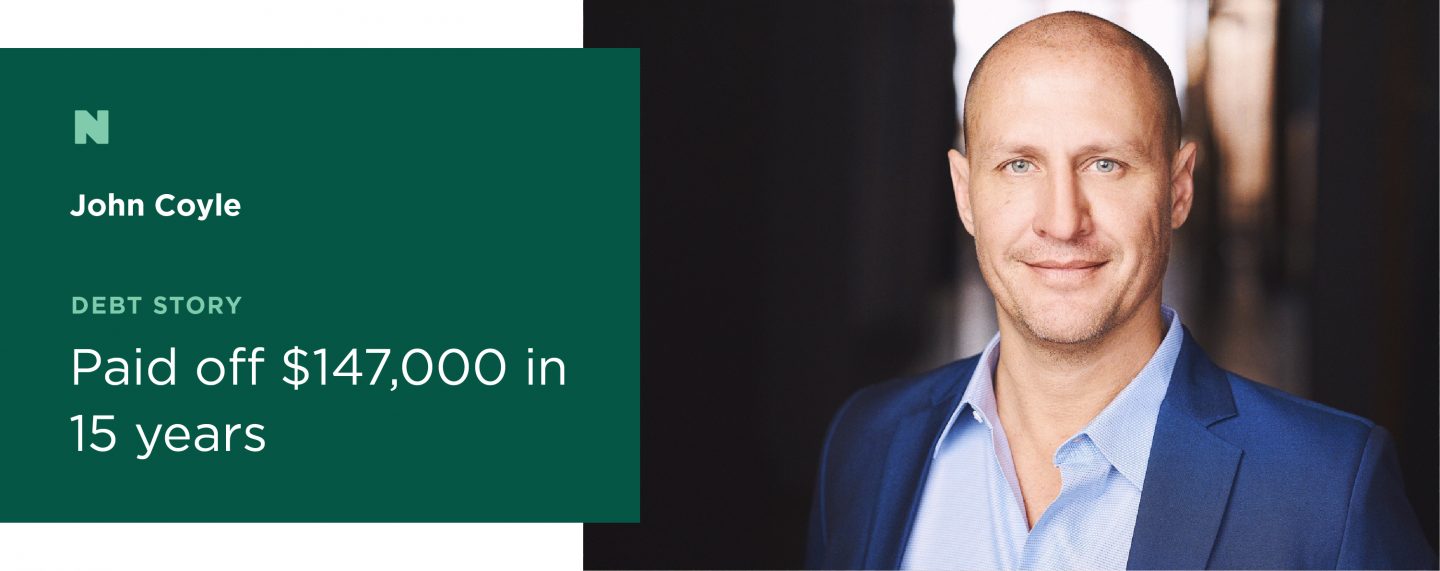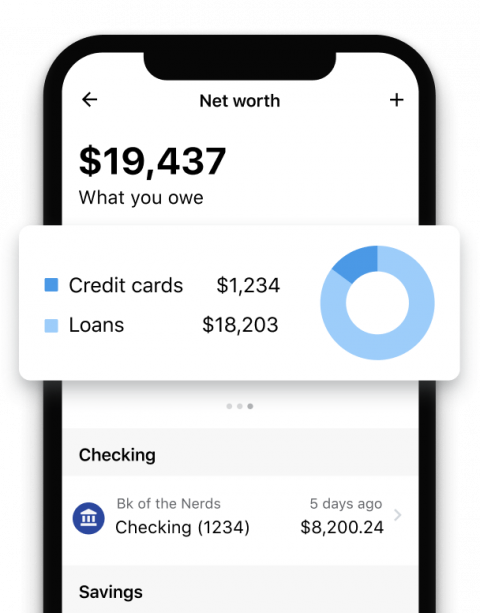In this series, NerdWallet interviews people who have triumphed over debt using a combination of commitment, budgeting and smart financial choices. Responses have been edited for length and clarity.

What would you do to pursue a career as an Olympic speedskater and earn degrees from two prestigious schools? Would you rack up $147,000 in debt to follow these dreams?
That’s exactly what John Coyle did. His debt helped fund his Olympics run, and upon landing a six-figure gig, Coyle paid it all off over 15 years.
Coyle, a 1994 silver medalist in the 5,000-meter relay, used a debt management plan from a nonprofit credit counseling agency. Under this program, debts are rolled into one monthly payment with reduced interest rates.
Coyle, now a motivational speaker, lives debt free — helped in large part by his sizable income. He details his journey and mindset to make the most of life on his blog, The Art of Really Living.
Although Coyle's debt journey may be best appreciated from a distance, his story shows that getting out of debt is possible if you have the determination.

What was your total debt when you started your repayment journey, and what is it now?
When I finished eight years of full-time Olympic speedskating, I had 17 credit cards carrying $87,000 in credit card debt, a $30,000 student loan from Stanford, and a $30,000 student loan from [Northwestern University's Kellogg School of Management]. I had a total of $147,000 in debt. Now I don’t have any debt.
How did you end up in debt?
I was training full time for the Olympics for eight years. The first four years I trained with the team at the Olympic training center, but their training program didn’t work for me, so the last four years I lived and trained and ate and traveled on my own, which is when the credit card debt piled up quickly.
For my student loans, half was from my undergrad at Stanford and half was from an MBA at Kellogg.
So you used debt as a way to finance your future: student loans for school, credit card debt for your Olympic dreams
It was intentional, yeah. I had some scholarships at Stanford, so I was lucky to get out of there with only $30,000 in student loans. Then Kellogg was for business. It was all an investment in the future. I don’t know which helped me more in my career: the degrees or the fact that I was able to compete in the Olympics. It still opens doors.
What triggered your decision to start getting out of debt?
It was a combination of things. I was 30 years old, never had a full-time job, had $147,000 in debt.
At the same time, the 0% interest credit card offers — the kind of credit cards I held my debt on — were becoming less common, and on four of my biggest cards, I no longer had 0% interest. The debt was starting to increase just based on interest rate, and it was getting super scary. So that was my trigger to see what are my options were.
What steps did you take to reduce your debt? What resources or services did you use?
I received a flyer in the mail about [debt management plans] and called. They said they could negotiate on my behalf and get me into a plan with one payment a month at a set amount, and they negotiated my interest rates from around 15% down to zero.
I had just started a high-paying job then in management consulting, too, so it was timed pretty well for me to afford paying off my debt.
Before you signed up for the debt management program, how did you manage your debt?
Every month or two, I’d get an offer from a credit card company for a new 0% interest credit card. So I’d transfer balances from one 0% APR card to the next when the first expired. I had a spreadsheet to monitor this. I did that between all of the cards. At any given time I probably had seven to eight fully loaded cards and the others didn’t have as much debt on them.
That sounds like a complicated juggling act. Were you ever worried about dropping the ball?
Up until the very end I had a decent amount of unused credit at any given time that I could rotate the debt between. Near the end I suddenly didn’t have that anymore, so I had run out of runway doing the swaps, and the interest was just starting to accrue. And it was timed pretty well with making money so I could start paying it off.
How long did you take to pay off your total debt?
Overall it took me 15 years to pay off all my debt.
With the debt management plan, I paid $1,100 a month for just shy of 6 years. I paid off Stanford in 2000, and Kellogg I paid off on a 15-year plan.
What’s your biggest takeaway from this process?
I think sort of like with everything, if you go in eyes wide open, debt can be an amazing tool to accomplish what you need.
When people get in trouble is when they don’t understand the interest compounding. But I was super well aware of that and was trading debt between creditors so I didn’t pay much in interest.
If you could go back and do anything differently, what would you change?
What I would definitely do would have been to understand what bankruptcy would have meant for me. I’m proud I paid off that debt, but on the other hand these laws exist for situations exactly like mine. I don’t know if I would undo what I did, because I do feel good that I paid it off, but would I rather have that $147,000 back? Maybe.
Now that you’re debt-free, how do you view debt?
For me, debt was a method to deliver the dream lifestyle that I didn’t have the time to work for. A lot of other athletes had parents with a lot of money. This was my mechanism to achieve the same dream. Honestly, I never really stressed over it, even when I realized I had to start paying it off. I had a job, so it was pretty easy.
How do you remain debt-free today?
I make a lot of money and keep expenses for “things” low. I don’t have a giant tower in the sky luxury apartment. My vehicles are reliable older cars. That way I can spend my money on experiences rather than things.
How to tackle your own debt
Start with a full assessment of what you owe, breaking it down by creditor, interest rate and amount owed per account.
Put your debt in context. See how your debt stacks up to your income to see if you can pay it off on your own, or if you have too much debt and should tap debt relief.
Debt management plans can help you save time and money paying off debt, particularly from credit cards. It might be a good idea if your debt-to-income ratio is greater than 15%.
Stay focused on the long term. Unless you win the lottery, you probably won’t pay off your debt overnight. Remember how paying off your debt will enable you to reach other financial goals, like saving for retirement.
Photo courtesy of John Coyle.
A previous version of this article misstated the amount Coyle would have liked to have had back. This article has been corrected.


